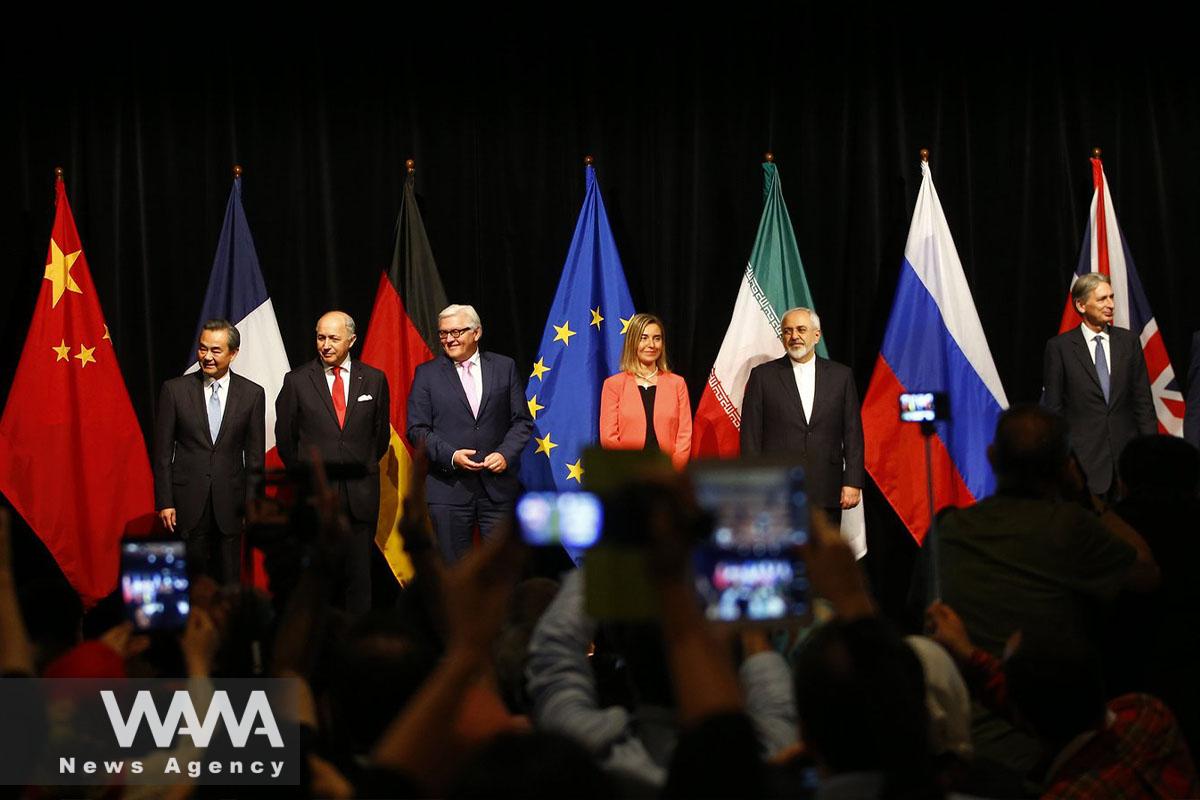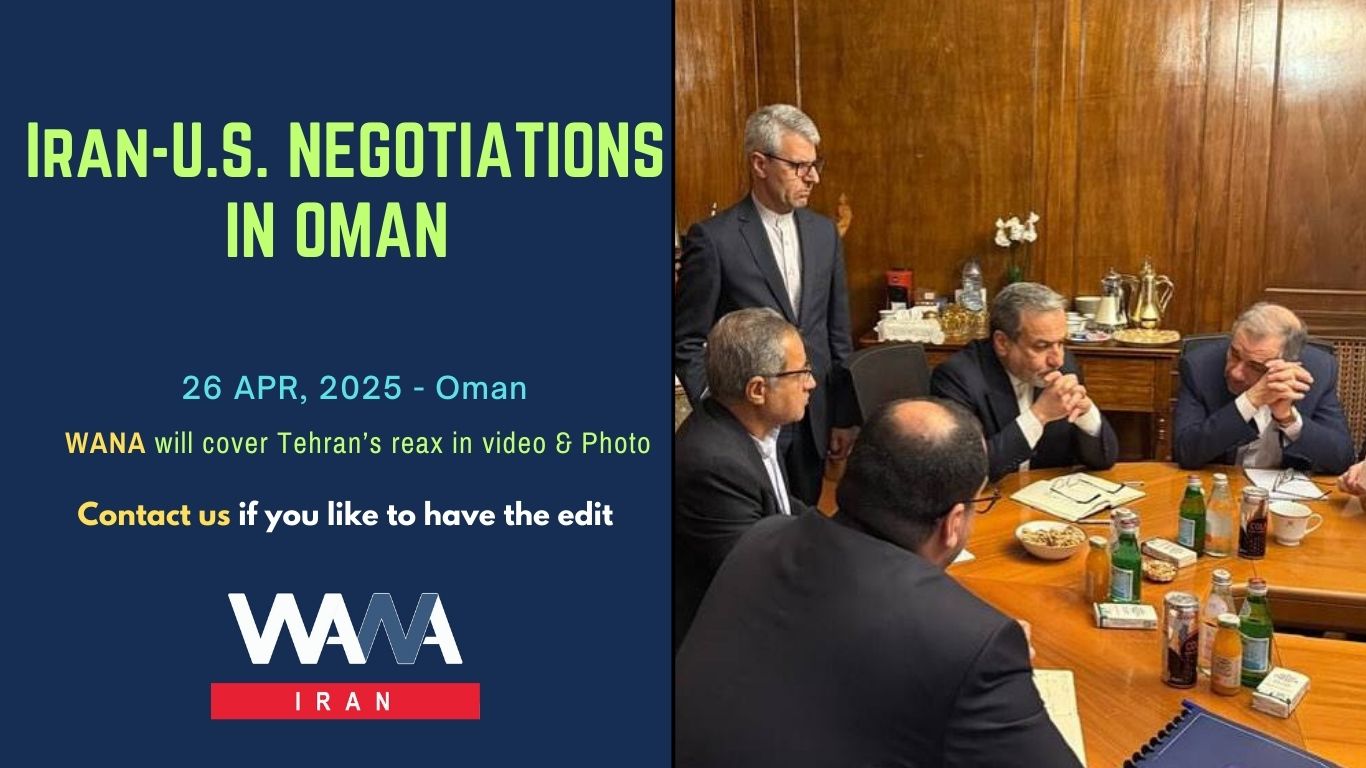Europe, the “Bad Cop” of Nuclear Talks, Sidelined
WANA (Apr 23) – In contrast to previous years, Europe’s role in the recent Iran-U.S. negotiations has diminished significantly. The European representative—once a key intermediary—has been largely pushed to the margins.
This sidelining appears to be the result of a combination of Europe’s waning global power, its failure to uphold commitments after the U.S. withdrawal from the JCPOA, and Washington’s shifting geopolitical priorities.
As Iran and the U.S. prepare to begin technical negotiations in Oman this Saturday—and with Abbas Araghchi currently visiting China—Europe’s absence in these developments has become increasingly evident.

Sham Negotiations No Longer Tempt Iran
WANA (Apr 12) – On May 9, 2018, Donald Trump, along with his anti-Iran Secretary of State Mike Pompeo and Vice President Mike Pence, had lunch at the White House. Just hours later, he arrogantly appeared before the media and declared Iran the “leading sponsor of global insecurity,” calling the nuclear deal (JCPOA) a “horrible […]
The Decline of European Power and Changing Global Dynamics
Once a key player in global diplomacy, Europe has struggled in the past decade with internal and external crises that have eroded its influence. Issues such as Brexit, post-COVID economic instability, and deep dependence on Russian energy—especially before the Ukraine war in 2022—have made it difficult for the EU to act as a strong and independent international actor.
The Ukraine conflict further revealed Europe’s reliance on American support, even in vital matters like energy security. The growing transatlantic divide during Donald Trump’s second presidential term also played a crucial role. His administration’s unilateralism, especially following his return to office, has seen Washington increasingly unwilling to coordinate with its European allies. Reports indicate that the U.S. has kept European nations out of the loop regarding nuclear talks, underscoring their reduced importance in Washington’s strategic calculus.
Europe’s Failure to Deliver on JCPOA Commitments
Another key reason for Europe’s marginalization in the Iran-U.S. negotiations is its inability to honor its JCPOA commitments after the American exit. In some instances, Europe took on the role of the “bad cop” in negotiations, acting as a pressure lever against Tehran.
After the U.S. unilaterally left the deal, the European troika (France, Germany, and the UK—known as the E3) pledged to preserve its economic benefits for Iran through mechanisms like INSTEX. However, this initiative proved ineffective and failed to significantly facilitate trade. This failure not only damaged Europe’s credibility in Iran’s eyes but also prompted Tehran to reassess its own commitments under the deal, eroding Europe’s status as a reliable mediator.

Nuclear deal negotiators pose for a photo at the UN building in Vienna, Austria.
America’s New Priorities and Europe’s Exclusion
The U.S. has recently shown a growing preference for negotiating directly with Iran—without European involvement. The upcoming technical talks in Oman are a clear example. Oman, which has previously played a mediating role between Tehran and Washington, is now the venue for discussions where no European representatives are expected. Reports indicate that the European troika has been completely excluded from the process. According to some diplomats, the U.S. has taken initiatives without consulting its European counterparts, further straining mutual trust.
Ultimately, the upcoming negotiations in Oman, along with Iran’s increasing diplomatic engagement with China and Russia, suggest that the nuclear issue is entering a new phase—one in which Europe plays a peripheral role. For Europe, restoring credibility and reclaiming diplomatic relevance will be a major challenge, one that will require rethinking its strategies and strengthening its strategic autonomy.
Iran-U.S. Technical Talks Scheduled for Saturday
Foreign Ministry spokesperson Esmaeil Baghaei announced in a press briefing that a technical-level meeting between Iran and the United States will take place next Saturday.
According to Baghaei, the session—initially planned for today as part of indirect consultations between the two sides—has been postponed to Saturday based on a proposal from Oman and mutual agreement between both delegations. The meeting will coincide with the presence of the heads of both delegations.













